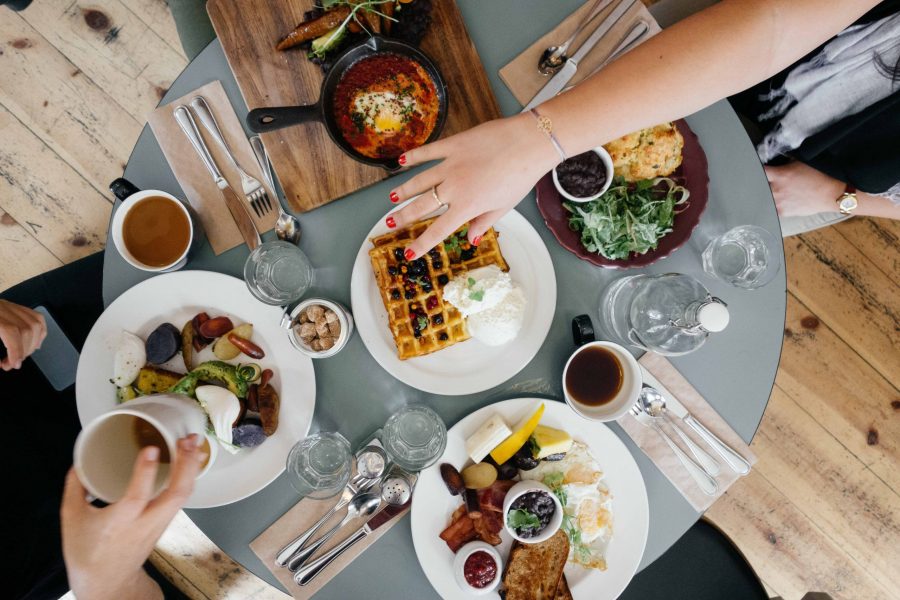Many of us still remember those Sunday meals at home: clean tablecloths, shiny shoes, the best crockery on the table, the most carefully prepared dishes including a special dessert, a bright festive atmosphere and a hustle and bustle. It is (was) the usual Sunday lunch atmosphere in our homes.
Eating with the family on Sundays was associated with a family feeling of connection, of belonging, of stability between parents, siblings, uncles, aunts, uncles, grandparents… When we sat down at the table, there was always a brief blessing, punctually initiated by the father or one of the siblings, under the always attentive presence of the mother. Then came the improvised feast, unforgettable.
Eating together was not simply a matter of eating food or tasting liquor. It was a singular encounter where we shared conversation and told stories. It allowed us to express ourselves, to communicate, to listen to each other, to learn … There was no need for words to be solemn and measured. It was more transmitted by presence, memories and jokes.
Perhaps this ritual, which unfortunately was waning in this society of haste, immediate consumption and switched-on mobile phones, has been partly recovered with the pandemic. It has forced us to go back to eating together and at home. We lacked training, but despite the cost, for many it was undoubtedly a surprising rediscovery.
For Jesus, meals also occupied an important place in his life. More than fasting. Almost no mention is made of daily lunches with his disciples, except when, compelled by the crowd, “he had no time to eat”. The meals in Bethany, in the house of Simon or Zacchaeus are mentioned… or those that he himself promoted by multiplying loaves, fish, wine… Curiously, Jesus called himself “Bread” and, as a testament, he left us, on that unforgettable Easter, a meal: the Eucharist.
The Eucharist connects with our meals, especially on Sundays. But, Christians, be careful not to forget that the true worship of God is “to share your bread with the hungry, to shelter the poor, the homeless, to clothe the naked” (Is 58:7). In the Acts of the Apostles this is called “koinonia”, that is, “communion”, which is not only that of the body and blood of Christ in the liturgy, but also the community of goods with those in need.
Our world is divided into two classes: those who have more food than appetite and those who have more appetite than food. For the former the problem is diet, for the latter it is hunger. Here Khalil Gibran’s perspective fits: “You can never consume more than your appetite. Half of your bread belongs to someone else and you would have to keep a piece for the unexpected guest”. Especially if it is Sunday and you celebrate the Eucharist.
Juan Carlos Martos cmf
(PHOTO: Ali Inay)






